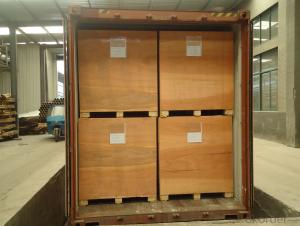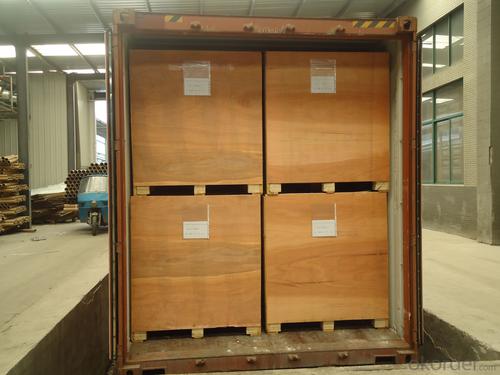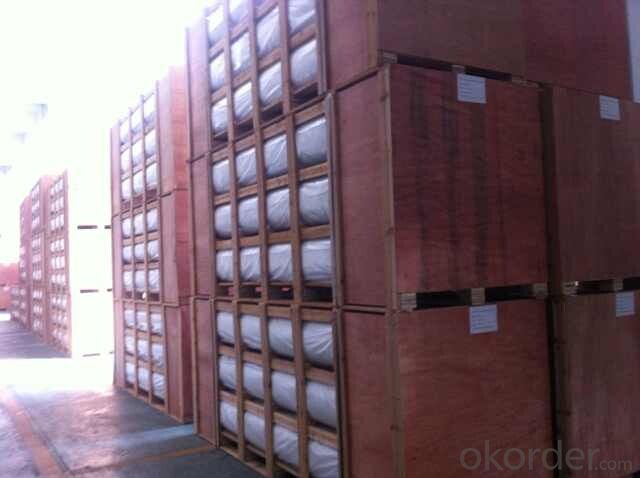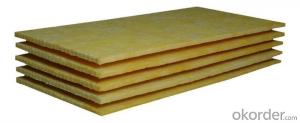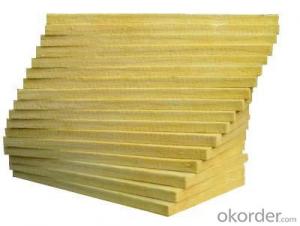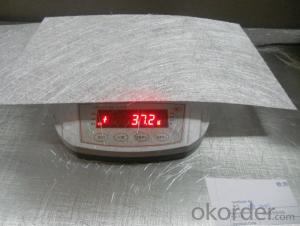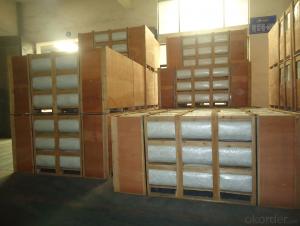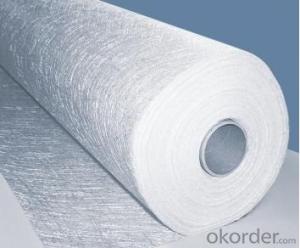Fiberglass Mat Tissue e-glass Chopped Strand Mat 2200mm
- Loading Port:
- Shanghai
- Payment Terms:
- TT or LC
- Min Order Qty:
- -
- Supply Capability:
- 10000MT m²/month
OKorder Service Pledge
OKorder Financial Service
You Might Also Like
1.Breif Introduction
Chopped strand mat with width 2200mm
Our chopped strand mat is with width 2200mm, packing in wooden box (pallet)with width 2250mm. In each 40HQ can be loaded 16-18 boxes(pallets), qualitu is around 2000kgs in each container.
2.Main Features
Standard Specifications for Chopped strand mat
1. High quality
2. ISO9001, 2008 quality controled
3. 320cm width, 100g,300g,450gto 900g
Our chopped strand mat factory specializes in manufacturing E-glass Chopped strand Mat (chopped strand mat manufacturer). The products range from chopped strand mat 300g/m2, chopped strand mat 450g/m2 to chopped strand mat 600g/m2 and 900g, the width from 102cm,104cm,125cm to 320cm.
3.Specifications
Product code | Glass type | Unite weight (g/m2) | Width(mm) | Roll weight (kg) | Moisture (%) | Binder content (%) |
100 | E Glass | 100+/-20 | 200-3200 | 30-70 | <0.2-0.3 | 3-4 |
150 | E Glass | 150+/-20 | 200-3200 | 30-70 | <0.2-0.3 | 3-4 |
200 | E Glass | 200+/-20 | 200-3200 | 30-70 | <0.2-0.3 | 3-4 |
300 | E Glass | 300+/-20 | 200-3200 | 30-70 | <0.2-0.3 | 3-4 |
| 450 | E Glass | 450+/-20 | 200-3200 | 30-70 | <0.2-0.3 | 3-4 |
600 | E Glass | 600+/-20 | 200-3200 | 30-70 | <0.2-0.3 | 3-4 |
900 | E Glass | 900+/-20 | 200-3200 | 30-70 | <0.2-0.3 | 3-4 |
4.FAQ
Q: Which knid of payment terms can you accept?
A: We can accept 30% prepayment, 70% payment before shippment. LC is also accepted
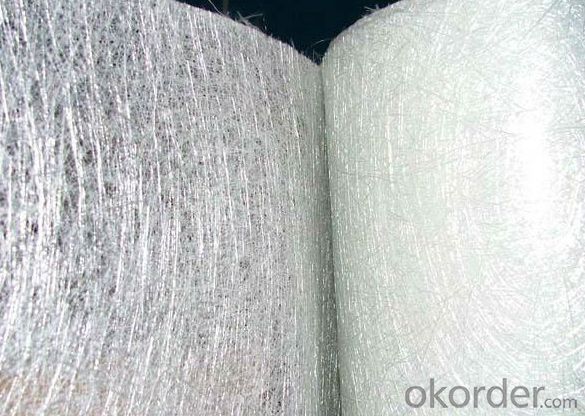
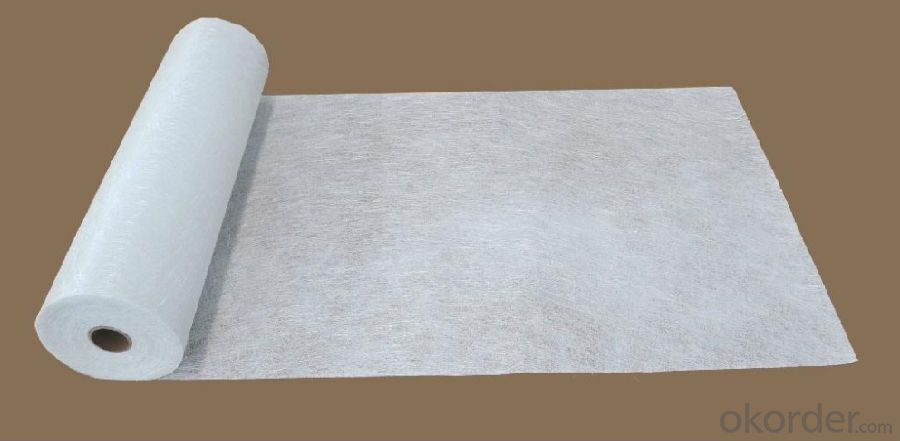
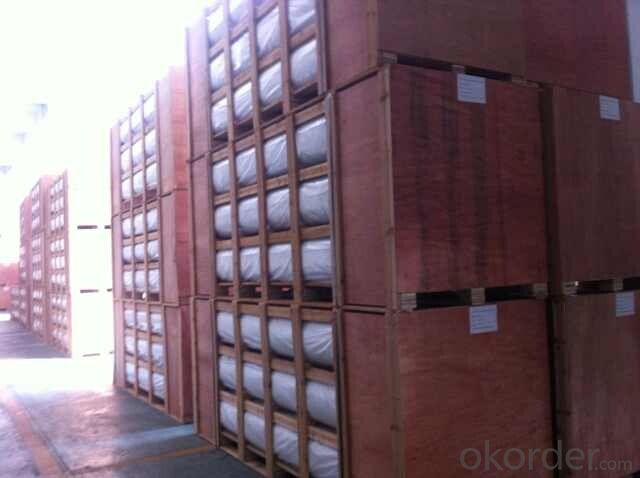
- Q: What is the moisture resistance rating of fiberglass mat tissue?
- The moisture resistance rating of fiberglass mat tissue may differ depending on the specific product and manufacturer. Nonetheless, fiberglass mat tissue is renowned for its exceptional moisture resistance properties. It is typically engineered to exhibit high resistance against water absorption, rendering it suitable for applications where moisture exposure is a concern. This moisture resistance attribute aids in preserving the structural integrity and performance of the fiberglass mat tissue, even under humid or wet conditions. It is crucial to consider the manufacturer's provided product specifications to ascertain the precise moisture resistance rating when selecting fiberglass mat tissue for a particular application.
- Q: How is fiberglass mat tissue used in the production of chemical reactors?
- Fiberglass mat tissue is used in the production of chemical reactors as a reinforcement material. It is typically applied to the inner surface of the reactor to provide structural strength, enhance resistance to corrosion, and improve overall durability. The fiberglass mat tissue acts as a barrier against chemical reactions, preventing leaks or damage to the reactor. Additionally, it helps maintain a stable temperature inside the reactor, ensuring efficient and safe chemical processes.
- Q: What is the density of fiberglass mat tissue?
- The density of fiberglass mat tissue typically ranges from 0.3 to 0.6 grams per cubic centimeter (g/cm³).
- Q: Is fiberglass mat tissue suitable for automotive panel repairs?
- Yes, fiberglass mat tissue is suitable for automotive panel repairs. Fiberglass mat tissue is a versatile and durable material that is commonly used in automotive repairs. It is particularly effective for repairing and reinforcing damaged or weakened areas on automotive panels. Fiberglass mat tissue provides a strong and stable foundation for repairing dents, cracks, or holes in panels, and it can be easily shaped and molded to fit the contours of the panel. Additionally, fiberglass mat tissue is resistant to rust and corrosion, making it a reliable choice for automotive repairs that need to withstand harsh weather conditions and road debris. Overall, fiberglass mat tissue is a suitable and widely-used material for automotive panel repairs due to its strength, durability, and versatility.
- Q: Is fiberglass mat tissue suitable for insulation in laboratories?
- Insulation in laboratories can be effectively achieved using fiberglass mat tissue. This material is widely used for thermal insulation due to its exceptional thermal properties. With its high resistance to heat transfer, fiberglass mat tissue serves as an efficient insulator, maintaining stable temperatures within laboratory spaces. Moreover, fiberglass mat tissue offers resistance against moisture, chemicals, and fire, all of which are critical factors in laboratory settings. It can withstand exposure to harsh chemicals without degrading or losing its insulating properties over time. Therefore, it is an ideal choice for insulation in laboratories where various chemicals and substances are handled. In addition, the installation of fiberglass mat tissue is hassle-free and can be tailored to meet specific insulation requirements. It can be easily applied to walls, ceilings, and pipes, creating a barrier that prevents the transfer of heat and ensuring a controlled environment within the laboratory. In summary, fiberglass mat tissue is a suitable option for laboratory insulation due to its thermal resistance, chemical resistance, fire resistance, and ease of installation. It aids in maintaining stable temperatures, safeguards against chemical exposure, and ensures safety in laboratory environments.
- Q: Is fiberglass mat tissue suitable for oil and gas applications?
- Indeed, fiberglass mat tissue proves to be fitting for oil and gas applications. This material, renowned for its lightweight yet robust nature, demonstrates resilience in the face of the demanding conditions that typically arise within the oil and gas sector. Its extraordinary resistance to chemicals, including oil and gas, renders it an optimal selection for endeavors like pipeline insulation, tank lining, and filtration systems. Moreover, fiberglass mat tissue showcases exceptional resistance to moisture absorption, possesses commendable thermal insulation characteristics, and can be effortlessly molded into diverse shapes and forms, thereby establishing itself as a versatile substance suitable for a wide range of oil and gas applications.
- Q: Is fiberglass mat tissue suitable for insulation in residential buildings?
- Yes, fiberglass mat tissue is suitable for insulation in residential buildings. It is a widely used and effective insulation material that offers excellent thermal performance, soundproofing capabilities, and fire resistance. Additionally, it is easy to install, durable, and does not degrade over time.
- Q: What is the flexural strength of fiberglass mat tissue?
- The flexural strength of fiberglass mat tissue refers to its ability to resist bending or flexing without breaking. It is typically high due to the reinforcing properties of the fiberglass material, making it suitable for applications requiring structural integrity and resistance to deformation.
- Q: Can fiberglass mat tissue be used for ballistic protection?
- Fiberglass mat tissue can be used for ballistic protection to some extent, but it may not offer the same level of protection as other materials specifically designed for this purpose. Fiberglass mat tissue is typically used in applications such as insulation, reinforcement, and fire resistance due to its high strength and heat resistance properties. However, when it comes to ballistic protection, there are more specialized materials available that are specifically engineered to withstand the impact of bullets or other projectiles. These materials often include aramid fibers (such as Kevlar) or ultra-high-molecular-weight polyethylene fibers (such as Dyneema) which are much more effective in providing superior ballistic protection. If ballistic protection is the primary concern, it is recommended to choose materials specifically designed for this purpose rather than relying solely on fiberglass mat tissue.
- Q: Is fiberglass mat tissue suitable for insulation in HVAC ducts?
- Yes, fiberglass mat tissue is suitable for insulation in HVAC ducts. It is a common and effective choice for providing thermal insulation, as it helps to reduce heat loss or gain in the ductwork. Additionally, fiberglass mat tissue is also resistant to mold and moisture, making it a reliable option for HVAC systems.
Send your message to us
Fiberglass Mat Tissue e-glass Chopped Strand Mat 2200mm
- Loading Port:
- Shanghai
- Payment Terms:
- TT or LC
- Min Order Qty:
- -
- Supply Capability:
- 10000MT m²/month
OKorder Service Pledge
OKorder Financial Service
Similar products
Hot products
Hot Searches
Related keywords
